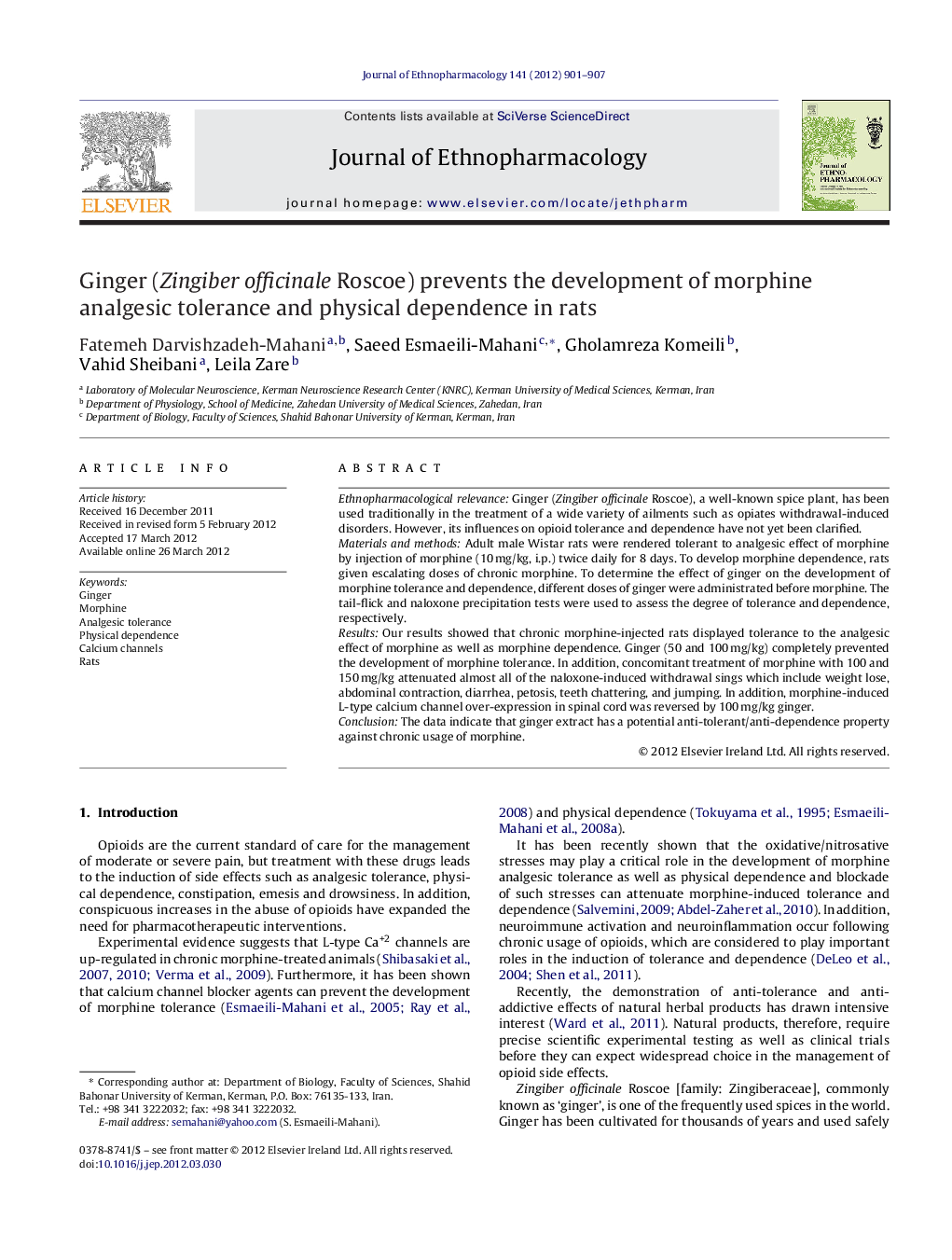| Article ID | Journal | Published Year | Pages | File Type |
|---|---|---|---|---|
| 5837968 | Journal of Ethnopharmacology | 2012 | 7 Pages |
Abstract
Ethnopharmacological relevanceGinger (Zingiber officinale Roscoe), a well-known spice plant, has been used traditionally in the treatment of a wide variety of ailments such as opiates withdrawal-induced disorders. However, its influences on opioid tolerance and dependence have not yet been clarified.Materials and methodsAdult male Wistar rats were rendered tolerant to analgesic effect of morphine by injection of morphine (10Â mg/kg, i.p.) twice daily for 8 days. To develop morphine dependence, rats given escalating doses of chronic morphine. To determine the effect of ginger on the development of morphine tolerance and dependence, different doses of ginger were administrated before morphine. The tail-flick and naloxone precipitation tests were used to assess the degree of tolerance and dependence, respectively.ResultsOur results showed that chronic morphine-injected rats displayed tolerance to the analgesic effect of morphine as well as morphine dependence. Ginger (50 and 100Â mg/kg) completely prevented the development of morphine tolerance. In addition, concomitant treatment of morphine with 100 and 150Â mg/kg attenuated almost all of the naloxone-induced withdrawal sings which include weight lose, abdominal contraction, diarrhea, petosis, teeth chattering, and jumping. In addition, morphine-induced L-type calcium channel over-expression in spinal cord was reversed by 100Â mg/kg ginger.ConclusionThe data indicate that ginger extract has a potential anti-tolerant/anti-dependence property against chronic usage of morphine.
Related Topics
Health Sciences
Pharmacology, Toxicology and Pharmaceutical Science
Pharmacology
Authors
Fatemeh Darvishzadeh-Mahani, Saeed Esmaeili-Mahani, Gholamreza Komeili, Vahid Sheibani, Leila Zare,
